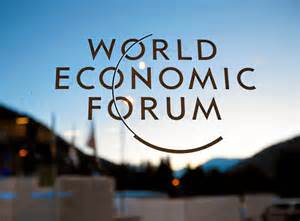ID :
340923
Thu, 09/11/2014 - 12:45
Auther :
Shortlink :
https://oananews.org//node/340923
The shortlink copeid
Iran To Be Among World’s 20 Emerging Economies

Tehran, Sept 11, IRNA - The World Economic Forum (WEF), the Swiss nonprofit foundation based in Cologny (Geneva), announced that after spending two difficult years, Iran’s economy is stabilizing and in its annual Global Competitiveness Report, ranked the country as the 83rd growing economy among 144 countries.
The WEF said as Iran’s economy is gaining stability, the country can use the opportunity to boost productivity of its financial market and employment and rank among the world’s top 20 emerging economies.
In an exclusive interview with 'Iran Daily', published Thursday, Mahmoud Khaqani, a senior economic expert, said that if the stated goal is to be achieved, Iran should cut reliance on oil revenues. A former director-general of the Oil Ministry, Khaqani is currently an advisor to the Oil Minister Bijan Namdar Zanganeh.
Iran Daily: How reducing reliance on oil revenues will increase productivity of financial market and employment?
Iran’s economy has always been dependent on oil incomes.
It is the country’s most challenging problem because injecting oil revenues into the country’s budget and the high share of oil exports in foreign revenues cause inflation which results in the devaluation of national currency and undermines competitiveness of domestic products in international markets.
Why the government’s five-year economic development plans do not stipulate reduction of reliance on oil incomes? Why has no measure been taken in this regard so far?
The issue was addressed in the government’s third and fourth five-year economic development plans (2000-10). But unfortunately, the fifth plan increased reliance on oil revenues.In the fifth plan oil revenues account for 65 percent of the country’s total income. This is while the government was supposed to move in a way to cut reliance on oil income by 2015.
Why was the objective not accomplished?
Unfortunately, the issue was not taken seriously before the ninth Majlis’ term began.This is while, if the seventh Majlis had paid due attention to the issue, most probably Iran’s economy would not have fallen into recession in the past few years. When the members of the seventh Majlis disagreed with increasing the prices of gasoline and oil products, in fact they delivered the first blow on the country’s economy.
According to WEF reports, one of the most important factors which helps Iran achieve economic growth is reforming the structure of public organizations. What is your opinion?
Two of the major economic problems are financial indiscipline and lack of effective management which weaken people’s trust in the government. Furthermore, due to the fact that certain people have more access to economic information and opportunities, because of lack of transparency, they spread financial corruption in the entire society through seeking economic rent.
In his previous term in office as the oil minister in the administration of the former Iranian president, Mohammad Khatami, Zanganeh proposed to set up an international stock market in Kish Island to fight fuel smuggling. Was the project implemented?
Since in Iran the government used to and still subsidizes fuel, oil products are sold cheaper in Iran compared to other neighboring countries. Therefore, fuel mafia smuggles a great deal of Iran’s strategic resources out of the country.
Zanganeh’s proposed project was an effective one. However, the plan was never implemented seriously. I hope that the present government will do so.
Would you please list some of the positive outcomes of international reports including that of WEF on Iran’s economy?
Those countries that attain higher ranks in the reports released by international organizations including WEF are granted higher credit ceilings for using the resources of international financial institutes./end





